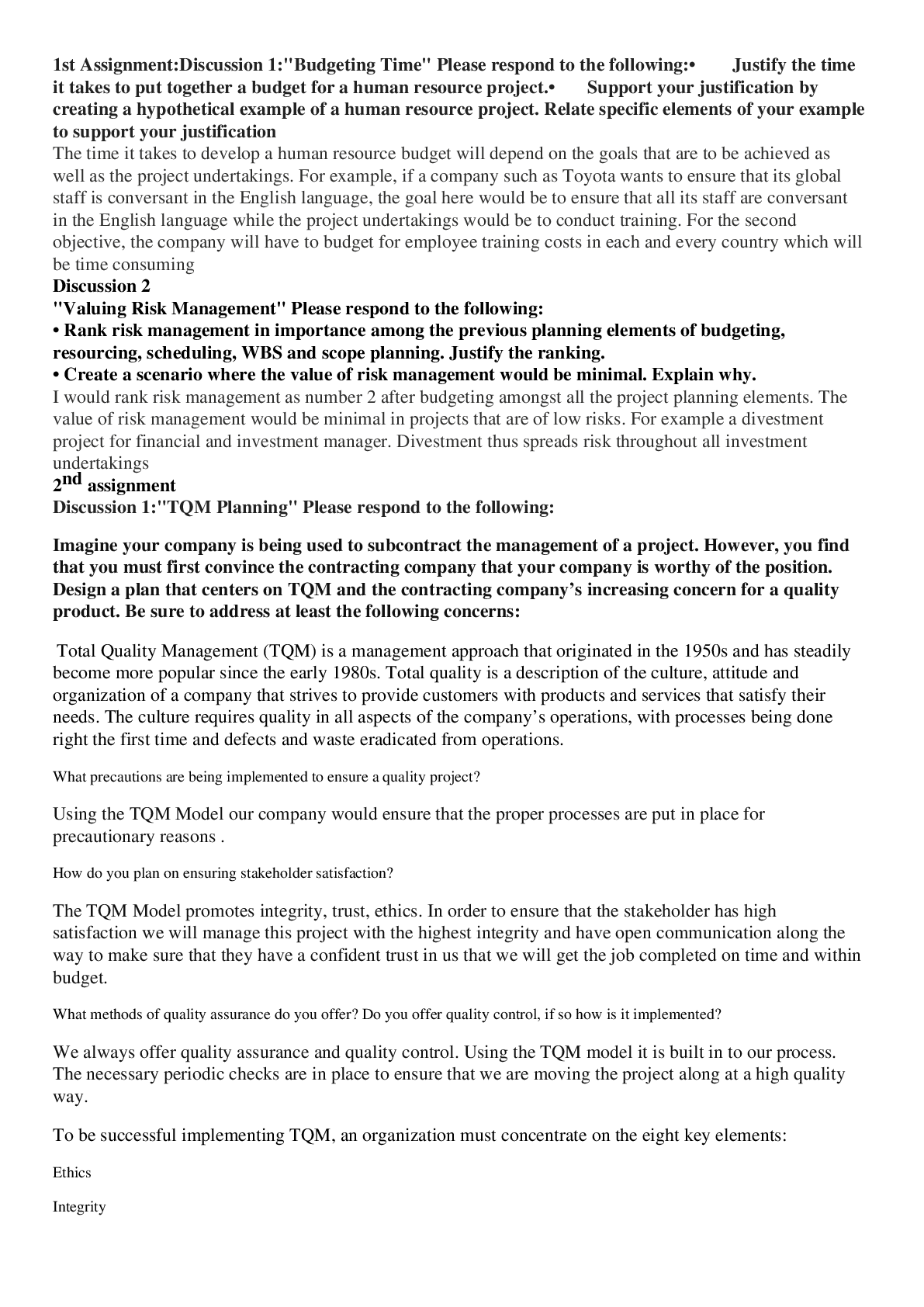PN HESI EXIT > EXAM > HESI PN GERONTOLOGY NEWEST TEST EXAM 2025/2026 WITH CORRECT VERIFIED ANSWERS MULTIPLE CHOICES WITH R (All)
HESI PN GERONTOLOGY NEWEST TEST EXAM 2025/2026 WITH CORRECT VERIFIED ANSWERS MULTIPLE CHOICES WITH RATIONALES GUARANTEED PASS | RATED A+ 100% SOLVED
Document Content and Description Below
An 83-year-old client diagnosed with type 2 diabetes mellitus has been admitted to home health care for an ulcer on the heel of the left foot. Which changes in the foot should the practical nurse (PN)... expect to find? (Select all that apply.) a. Pedal pulses will be weak or absent in the left foot. b. The client states that the left foot is usually warm. c. Flexion and extension of the left foot will be limited. d. Capillary refill of the client's left toes is longer than 2 seconds. e. The client denies any pain in the left foot. - Answer>>> a. Pedal pulses will be weak or absent in the left foot. e. The client denies any pain in the left foot. Symptoms associated with decreased blood supply are weak or absent pedal and tibial pulses. The client denying any pain is a common complication with type 2 diabetes in the elderly. The practical nurse (PN) working at an assisted living facility is visiting with a client whose spouse died 8 months ago. Which behavior by the client suggests ineffective coping with the spouse's death? a. Frequently neglects to shower and shave. b. Insists on visiting the gravesite once a month. c. Joins an exercise class at the assisted living facility. d. Keeps their photo albums out and looks through them frequently. - Answer>>> a. Frequently neglects to shower and shave. Ineffective coping is manifested by behaviors that may be physically or psychologically harmful to the individual. Neglecting personal hygiene is an example of ineffective coping. A 90-year-old client is brought to the emergency room by a niece who visits him twice a week. The client lives independently, has several hobbies, and interacts well with his friends and relatives. Last night, the client suddenly became agitated, and started hallucinating. Urinalysis and complete blood count reveal a urinary tract infection. The niece asks "Is my uncle developing dementia?" Which answer is most appropriate to provide? a. Unfortunately, these are early signs of dementia. b. It is unfortunate he did not get treatment for dementia earlier. c. Since the symptoms began so rapidly, it is not likely dementia. d. The hallucinations he is having indicate he may have dementia. - Answer>>> c. Since the symptoms began so rapidly, it is not likely dementia. Acute delirium, rather than dementia, is more likely because delirium is associated with an abrupt onset and a systemic illness. In this case the client has only had symptoms since last night and has been diagnosed with a urinary tract infection. Once the infection has been treated successfully, it is likely the client will return to his usual state. Dementia is characterized by a slower onset of symptoms. It is nontherapeutic to tell a client's family member he should have been treated earlier. [Show More]
Last updated: 1 month ago
Preview 5 out of 38 pages

Loading document previews ...
Buy this document to get the full access instantly
Instant Download Access after purchase
Buy NowInstant download
We Accept:

Reviews( 0 )
$16.00
Can't find what you want? Try our AI powered Search
Document information
Connected school, study & course
About the document
Uploaded On
Jul 01, 2025
Number of pages
38
Written in
Additional information
This document has been written for:
Uploaded
Jul 01, 2025
Downloads
0
Views
18

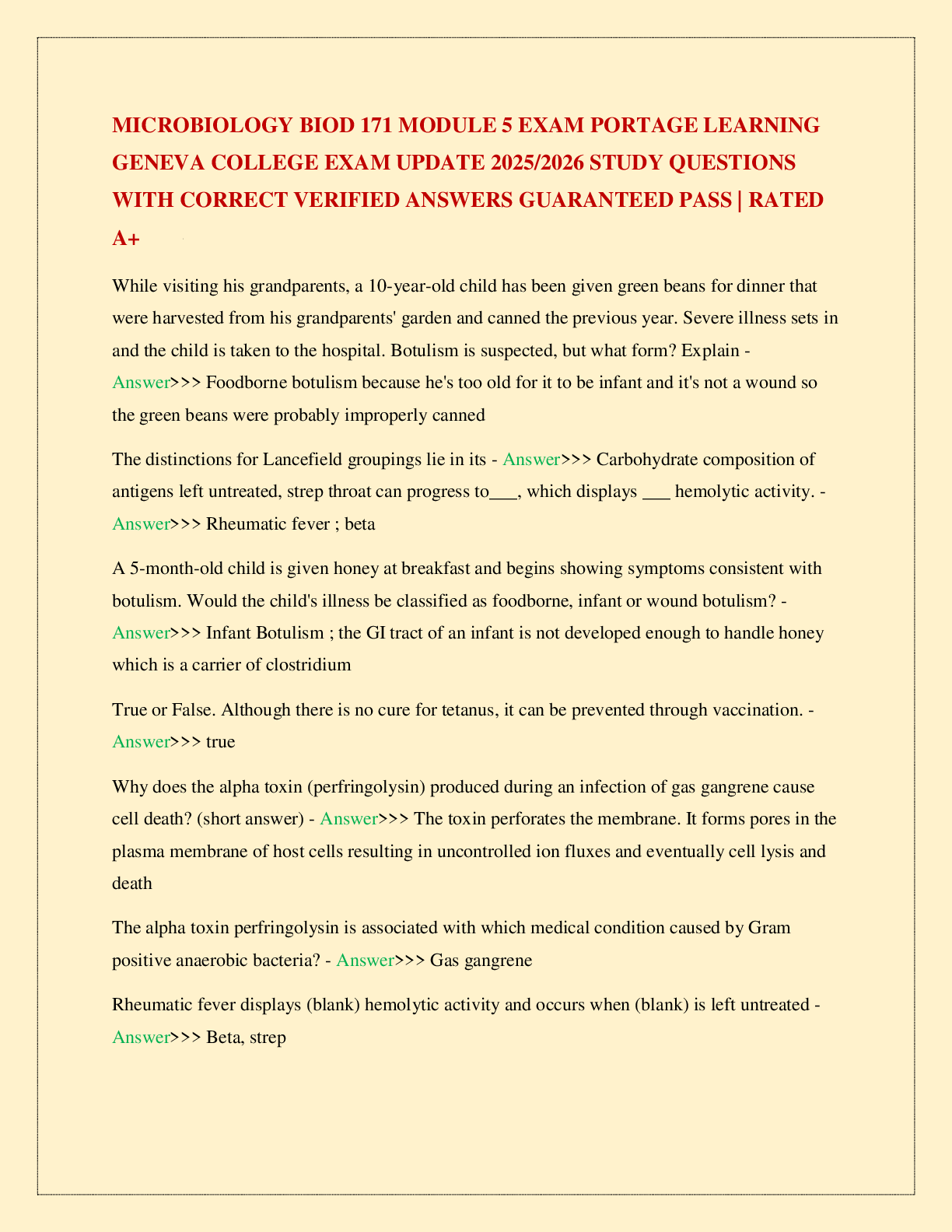
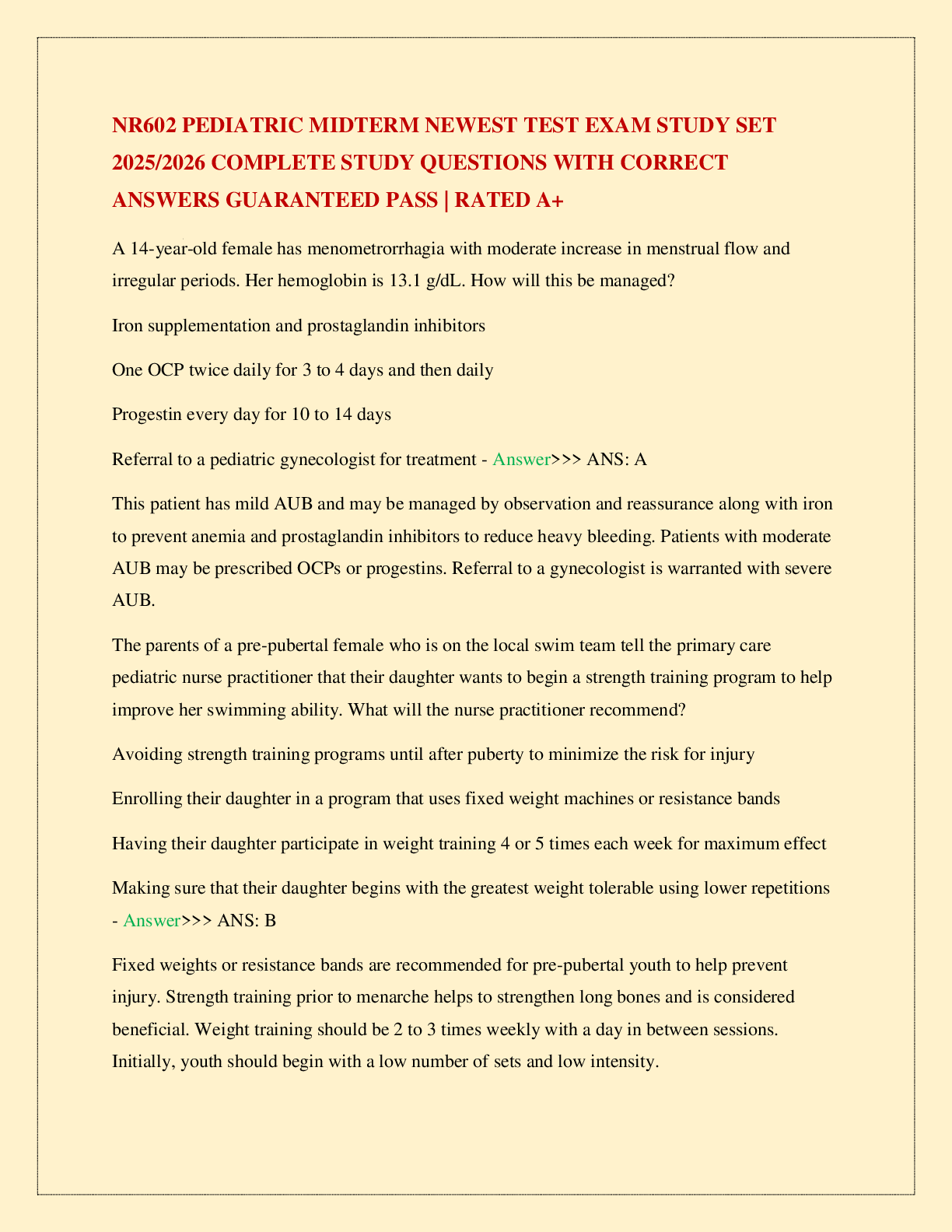

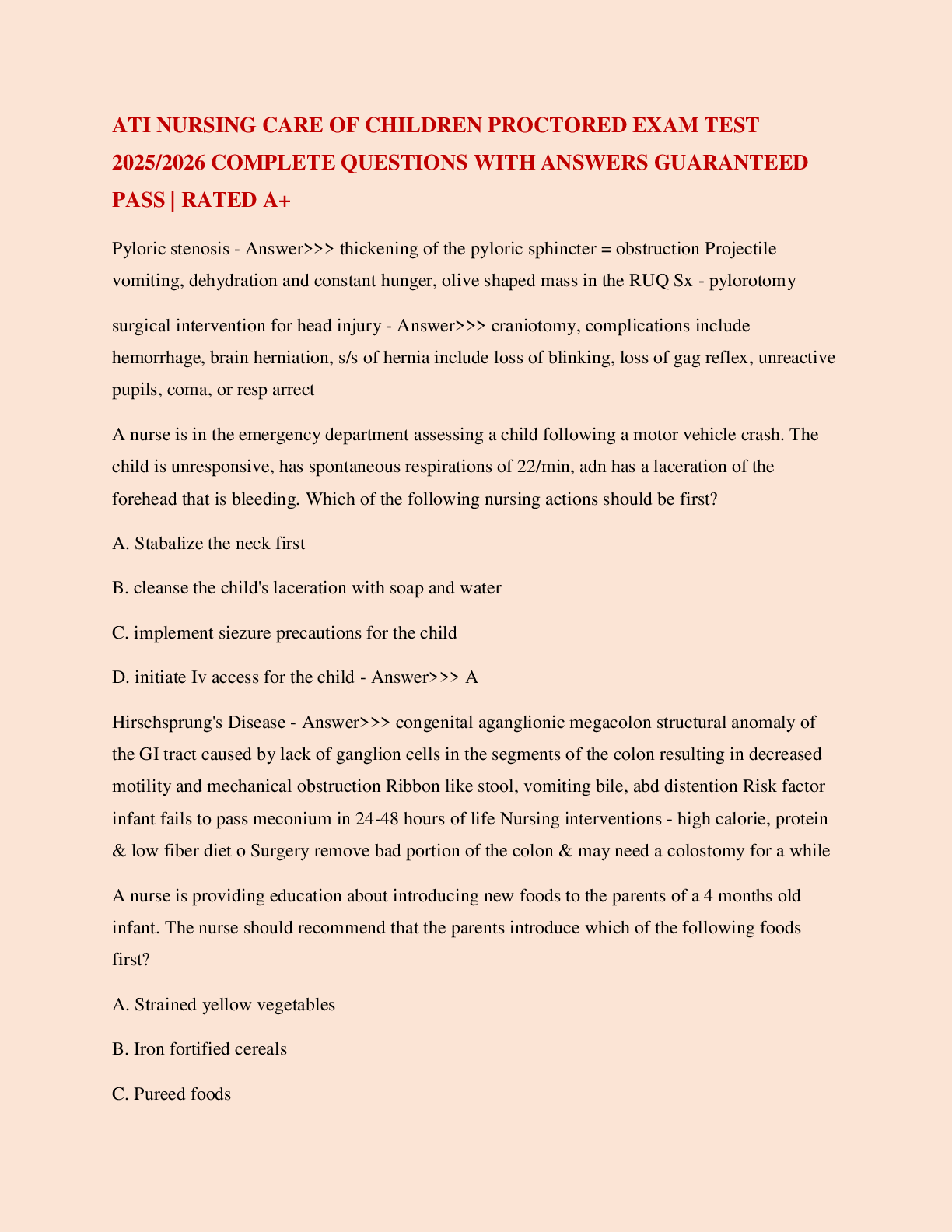

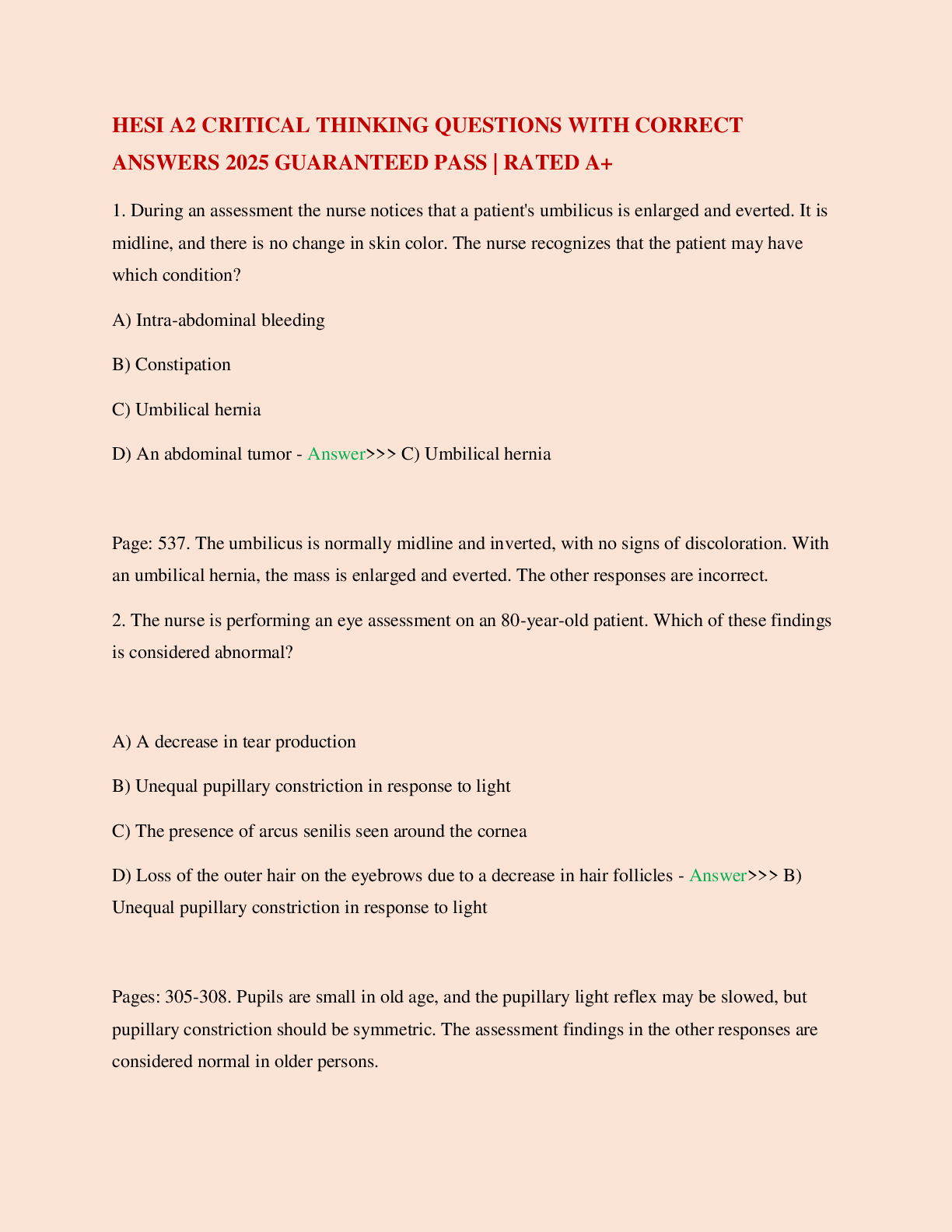
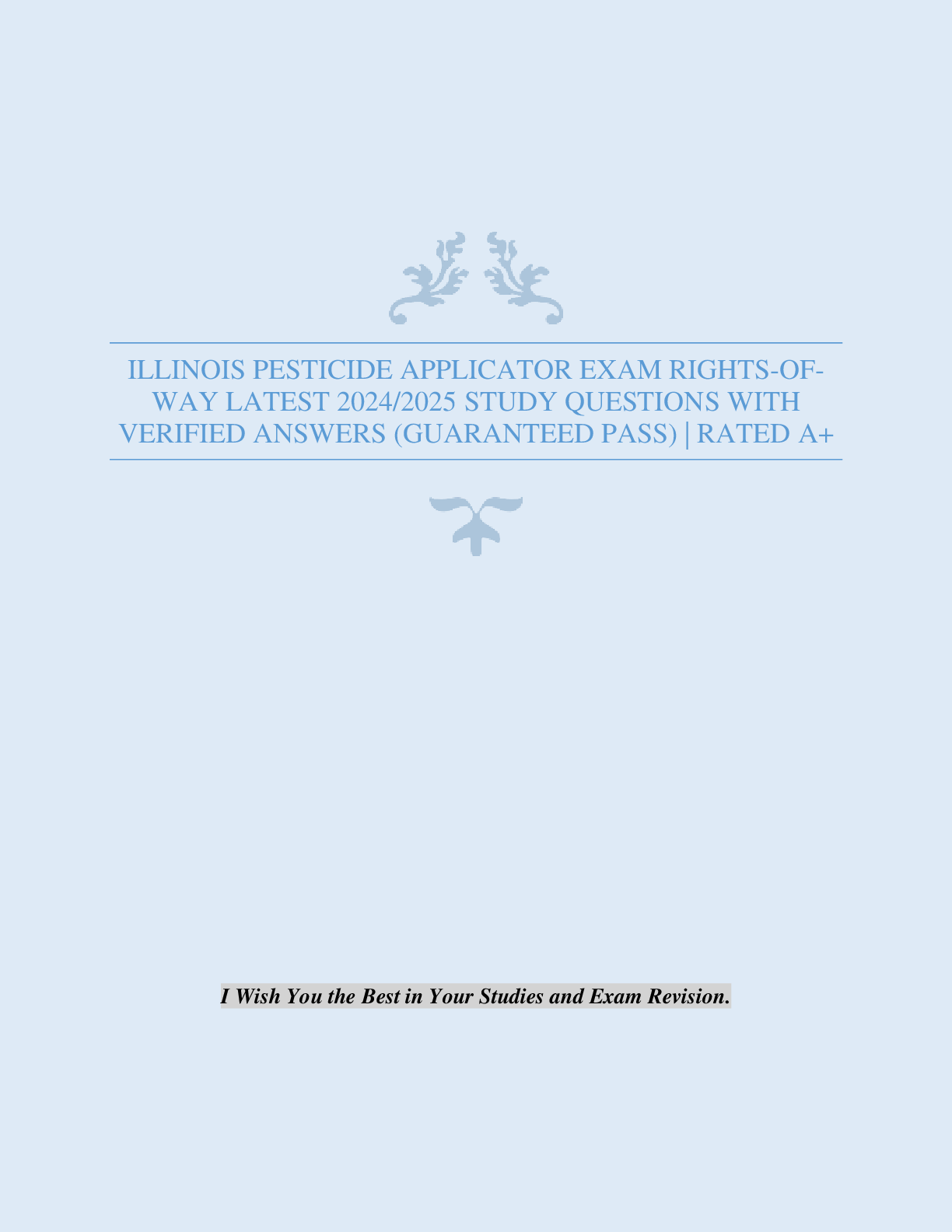

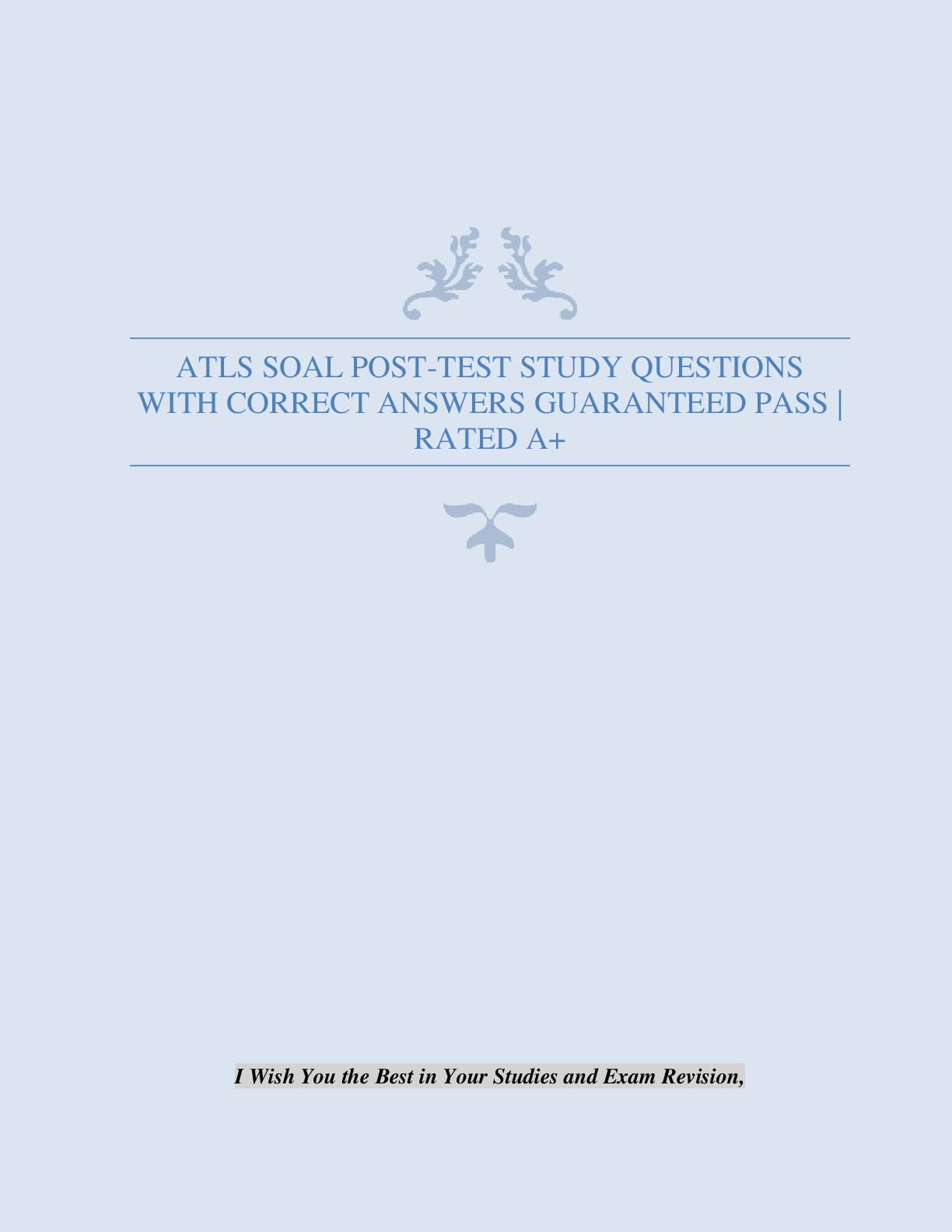
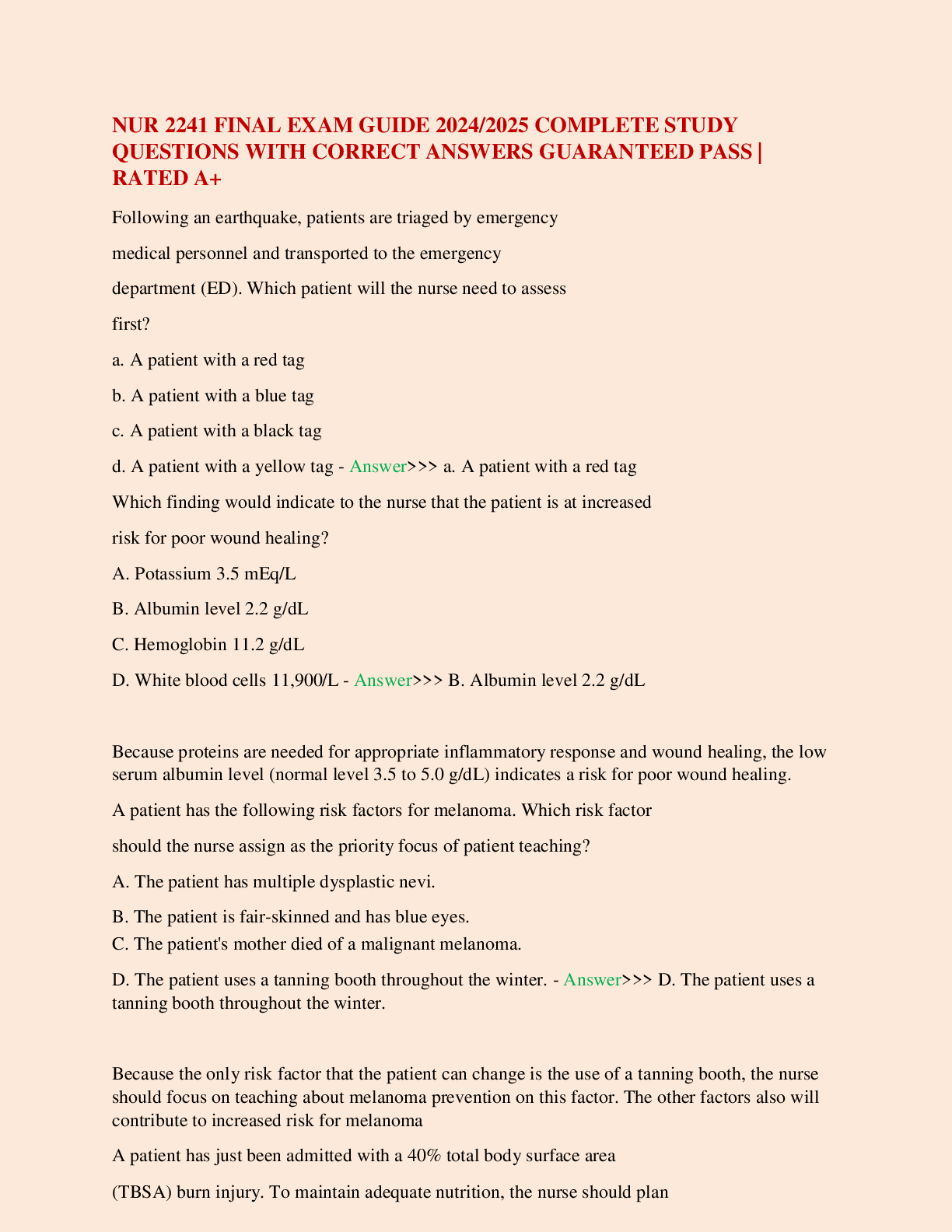

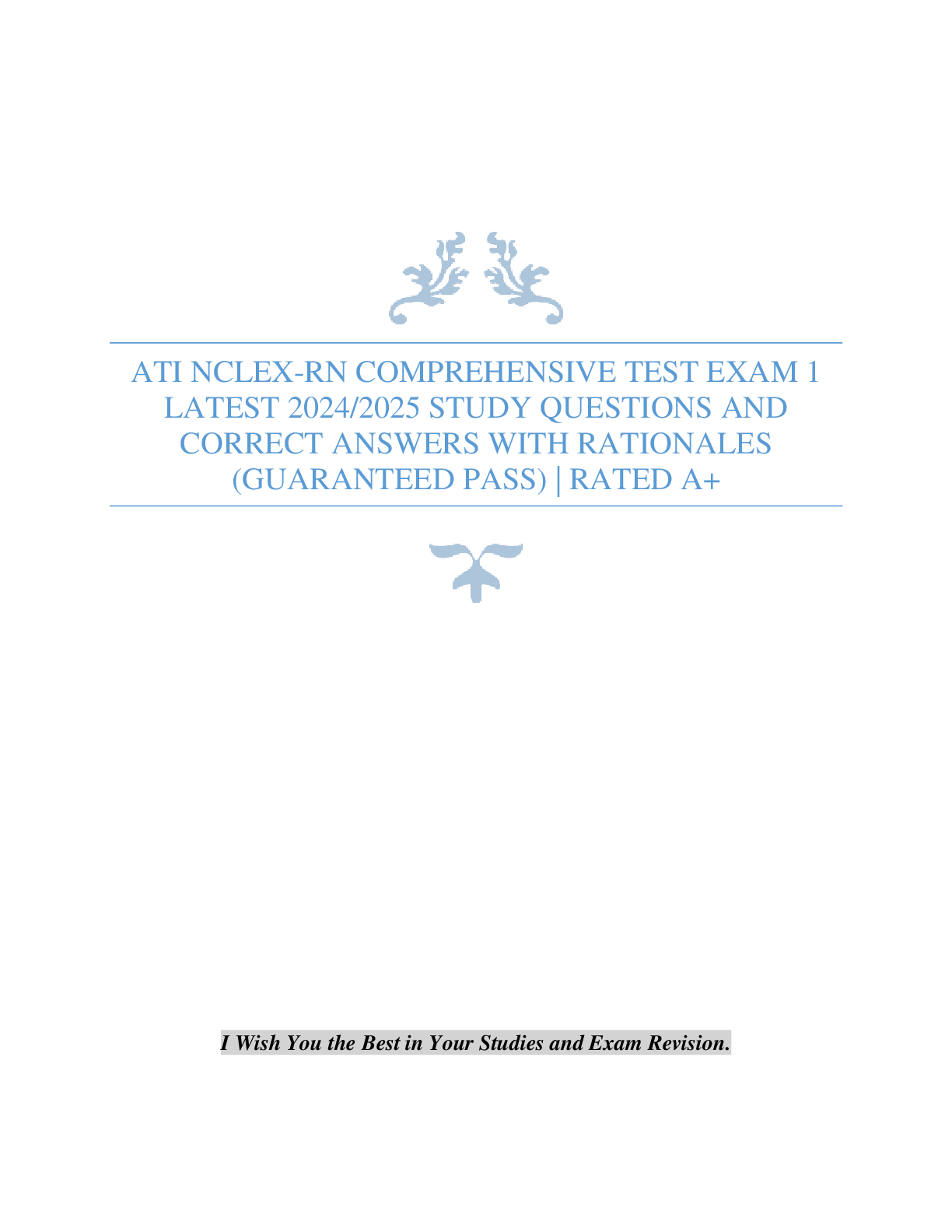

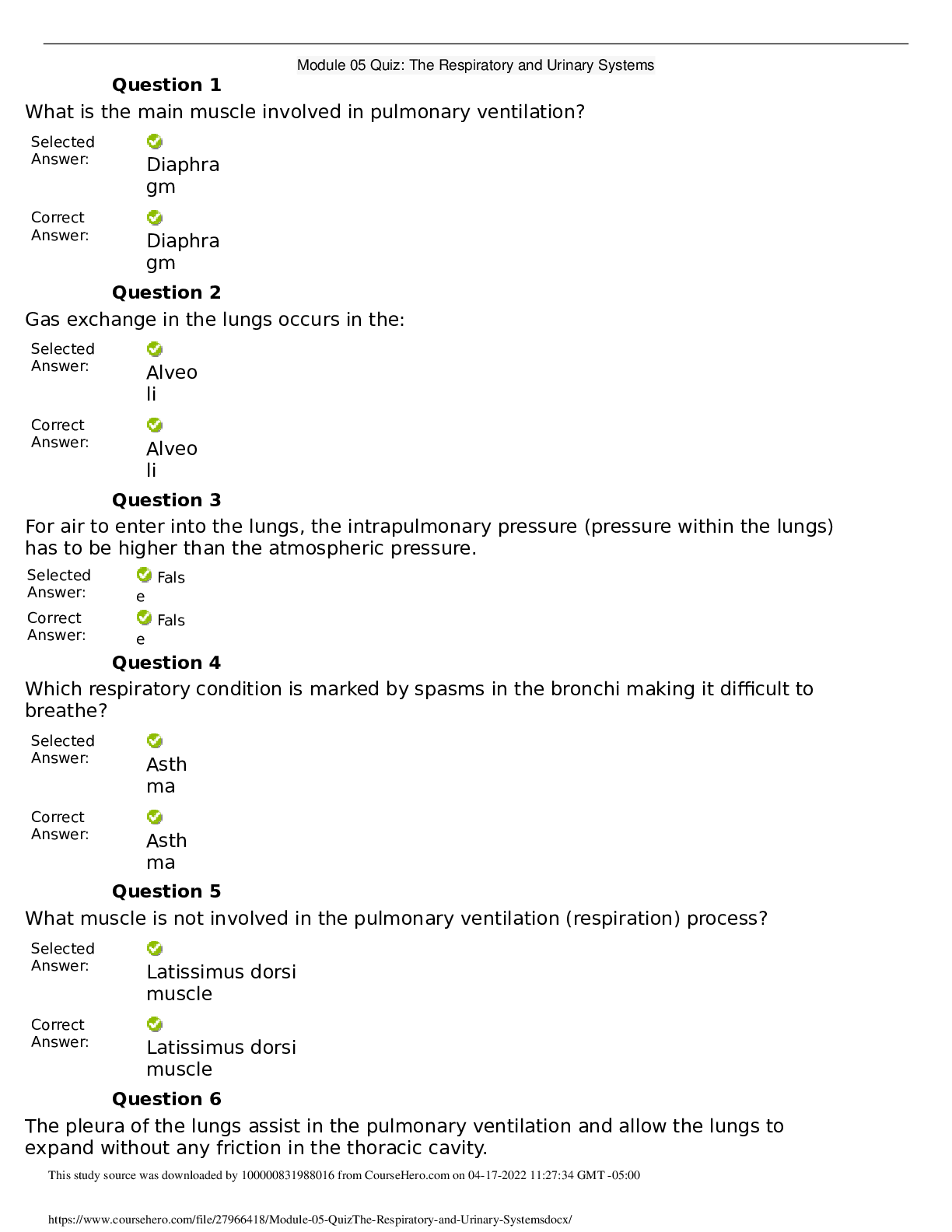
.png)
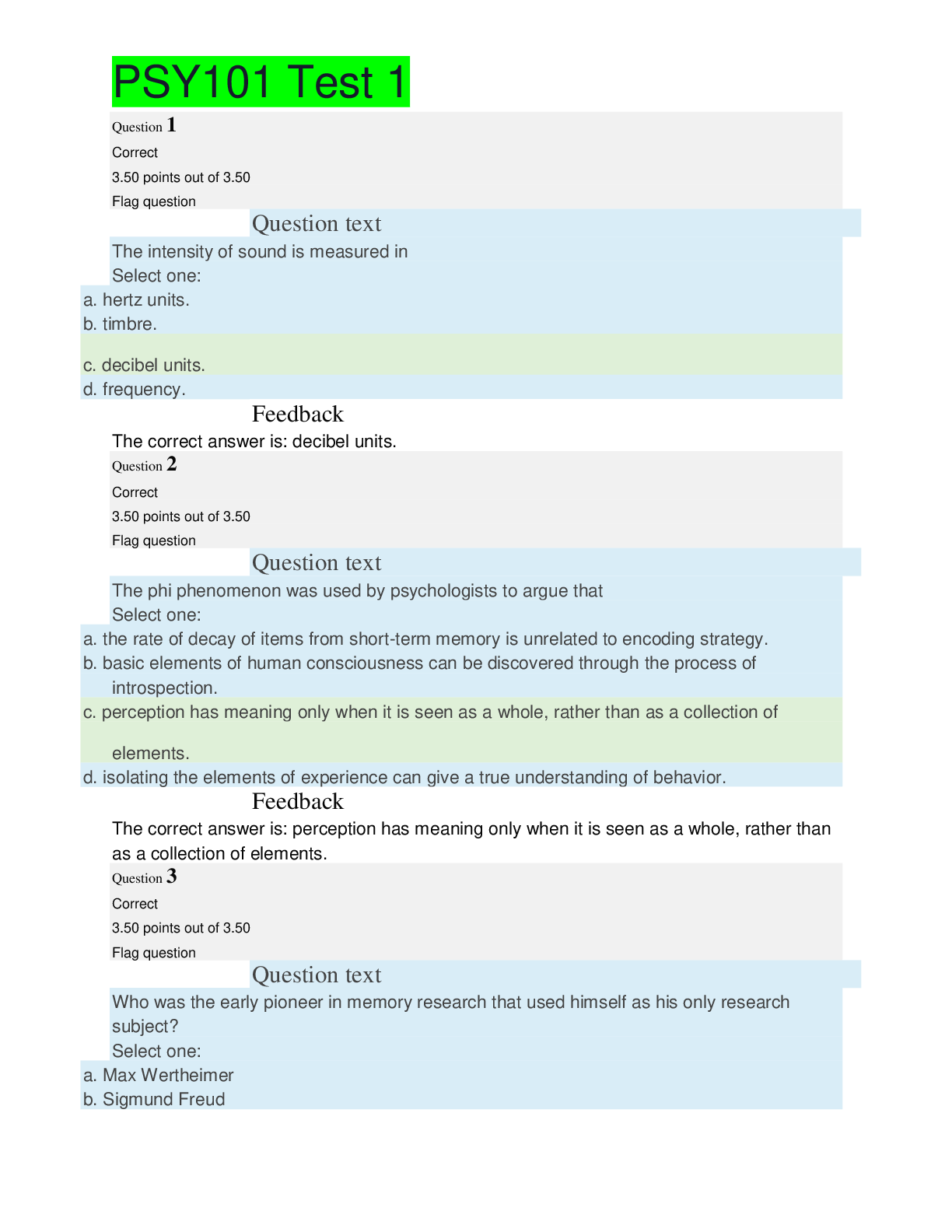
.png)
.png)


.png)
.png)
.png)
